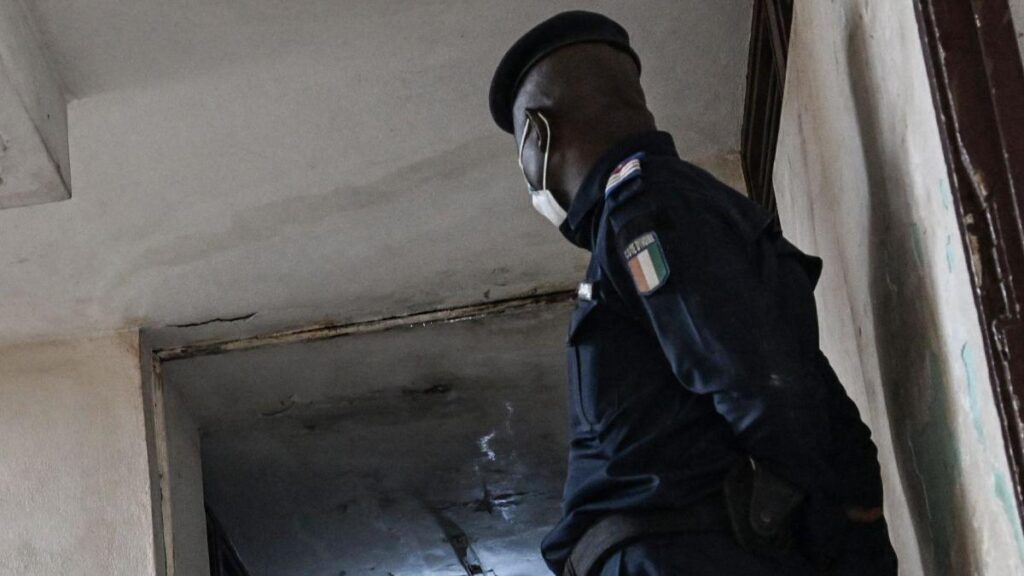In recent developments in Ivory Coast, the government has announced the closure of all student unions following the tragic slayings of two students, Khalifa Diomandé and Zigui Mars Aubin Déagoué, which have been attributed to the powerful Student and School Federation (Fesci). This decision comes in the wake of a series of arrests of Fesci members in connection to the murders, igniting discussions on the organization’s notorious reputation and its illicit activities. Reports from investigations at Félix-Houphouët-Boigny University uncovered a hidden tunnel allegedly used for torture and a brothel, underscoring the culture of fear and terror that has persisted for years among students.
Survivors of Fesci’s reign of terror share harrowing accounts of their experiences, revealing a pervasive culture of extortion and violence. One former student, who requested anonymity, recounted being threatened multiple times, including a disturbing incident where she claimed to have been nearly raped by members of the organization. Her story mirrors that of many others who faced severe intimidation and violence, making it clear that Fesci’s influence over the university landscape had created a hostile environment. “You wouldn’t have believed you were in a university in an organized country,” she lamented, indicating the extent of the fear that kept students silent about the abuses.
Students also report systemic extortion by Fesci, with one individual stating that he was coerced into paying $250 monthly for accommodation instead of the standard $100. The threat of violence created a chilling climate in which speaking out against Fesci was not an option for many. The government’s declaration to shut down student unions seemed to provide a necessary relief for those who have suffered under Fesci’s dominance, as there was widespread celebration among the student body following the announcement, indicative of the long-standing grievances they harbored against the organization.
In a significant crackdown, the government conducted raids across universities in Abidjan and Bouaké, resulting in the seizure of over 100 machetes and grenades, as well as the expulsion of approximately 5,000 undeclared residents on university campuses. The extent of Fesci’s connections to organized crime and political machinations has been alarming, with many former leaders of the organization transitioning into notable political figures. Critics of Fesci have pointed to its historical role as a protest group which has evolved into a force for corruption and violence, suggesting that its existence has long hindered true democratic discourse among students.
The ramifications of the government’s actions extend beyond immediate safety concerns, as there are implications for the political landscape of Ivory Coast. The historical context of Fesci’s formation in the 1990s illustrates a timeline marked by both activism and criminality. Former leaders like Guillaume Soro and Charles Blé Goudé, who moved on to significant political roles, highlight a disturbing trend of student groups becoming platforms for political power rather than educational advocacy. A lecturer expressed hope that the ban would reinstate a semblance of peace to the university environments that have long been plagued by violence and fear.
The announcement of the student union ban is seen as a pivotal moment for the future of higher education in Ivory Coast, potentially marking the end of an era marked by Fesci’s brutal regimes. For many, the decision represents a long-awaited opportunity for safety and reform on campuses, as students look forward to a time where academic institutions can regain their intended purpose of learning and development, free from fear and repression. As the country navigates this transition, it is crucial that the voices of the victims are heard, and that measures are put in place to ensure similar abuses do not reoccur in the future, thereby securing a brighter, violence-free future for Ivorian students.

